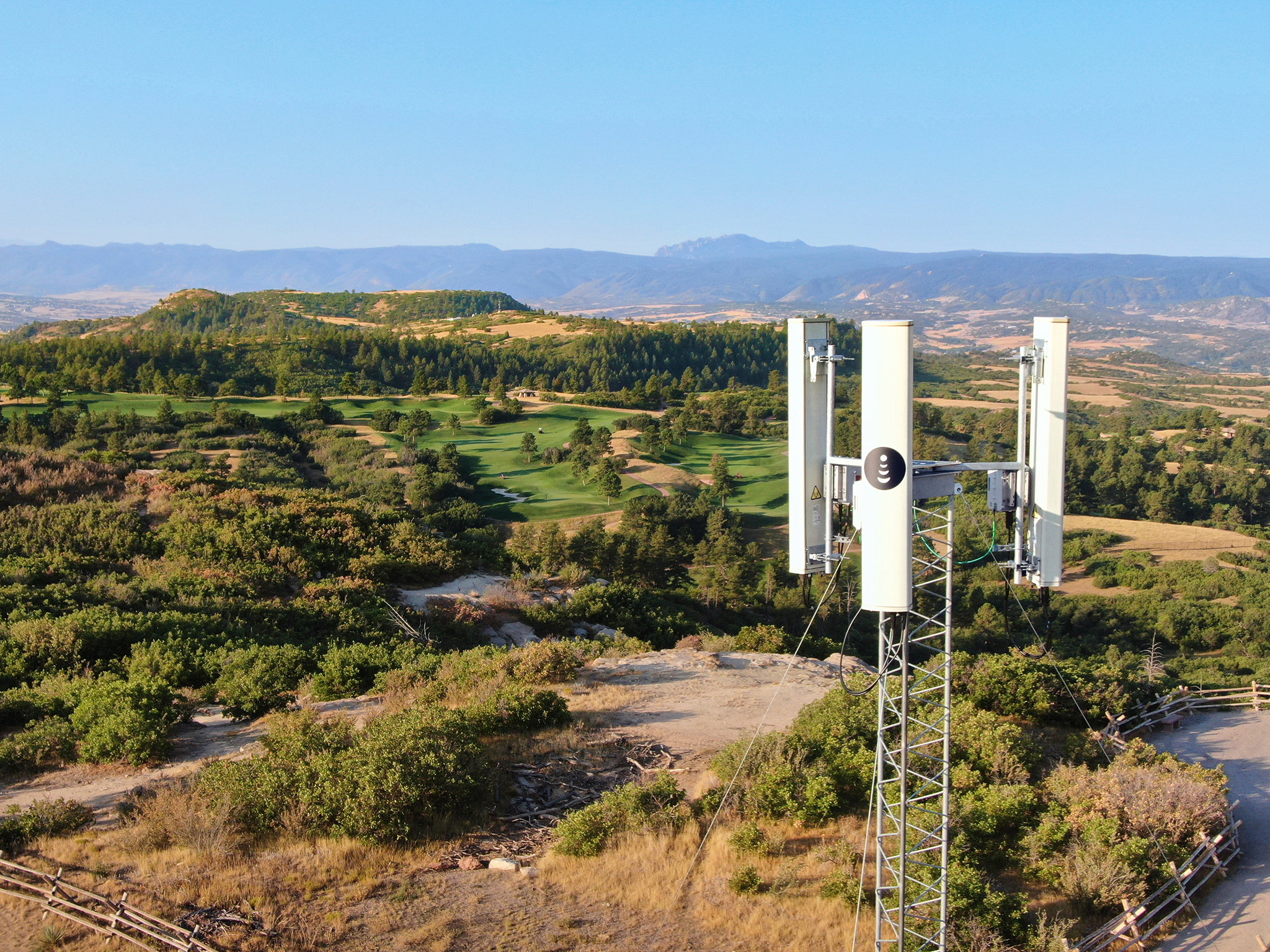Dish Stock Falls as Analyst Doubts Wireless Play’s Success
JP Morgan's Phil Cusick downgrades shares to 'underweight' from 'neutral'

The smarter way to stay on top of the multichannel video marketplace. Sign up below.
You are now subscribed
Your newsletter sign-up was successful
Dish Network stock fell more than 5% Wednesday after JP Morgan media analyst Phil Cusick downgraded the stock, casting doubt on the satellite TV giant’s wireless plans and adding that the one potential bright spot in the strategy is at least two-to-three years off.
Cusick downgraded Dish shares to “underweight” from “neutral,” but raised his 12-month target on the shares from $38 to $45 each, saying that its plans to build a wireless network in the next several years could be extremely costly and that the No. 2 satellite TV service provider enters the market at a time when barriers are high and competition is fierce.
Dish shares fell as much as 7.3% ($3.16 each) to $40.42 per share on June 9, closing at $40.44 each, down 7.2%.
“We can’t find a way but to be skeptical on the Dish story,” Cusick wrote. “[W]e have nothing but respect for Dish chairman Charlie Ergen and his team, but can’t get over our skepticism on three major issues.”
Those issues, according to Cusick are the difficulty in building a wireless network, Dish is expected to struggle to compete against wireless carriers with double and triple its spectrum holdings, and fears that Dish may be too late to the 5G game as other carriers have accelerated deployment and eliminated any advantage Dish would have had if it had been first.
Dish has said it would spend about $10 billion to build a nationwide 5G wireless network based on ORAN technology, a figure that many analysts said is shockingly low. Dish has about one year to make the network available to 20% of the country as part of the federal requirements for its wireless spectrum licenses, and to 70% of the country by June 2023, deadlines the company says will be reached easily but that other analysts are skeptical can be achieved without a partner. Dish has said it will launch service first in Las Vegas in the third quarter.
Also Read: Dish: No Partner Needed for Wireless Dance
The smarter way to stay on top of the multichannel video marketplace. Sign up below.
Some had hoped that partner would be Amazon, and Dish said in April that it picked the e-retailing giant to provide cloud services for its wireless offering. But so far, Dish is expected to build the network on its own.
In his report, Cusick wrote that the only bright spot for Dish’s wireless endeavors -- a possible partnership with Amazon in some sort of “Prime Wireless” offering -- if it were to occur, is at least two to three years off in the future.
“What could a ‘Prime Wireless’ offer look like? What would it bring? We think a lot about where we could be wrong, and how Dish could really disrupt the wireless industry,” Cusick wrote, adding that it’s difficult to see how the satellite company could offer disruptive pricing on its own.
While Cusick says it is possible that Dish and Amazon could mirror what e-retailers Rakuten and Jio have done with wireless -- offering months or years of free wireless service to drive Prime subscriptions -- he still has doubts.
Also Read: Satellite TV: Five Years, That’s All You’ve Got
Cusick estimated that it could cost Amazon as little as $11 per subscriber per month to offer a Dish wireless service with Amazon Prime, but he wondered “why Amazon would do this until Dish’s network is proven and of sufficient quality. It makes a lot more sense to us, if it happens, 2-3 years from now at earliest.”
Cusick also speculated on a possible merger of satellite TV assets with rival DirecTV, which in February said it would spin off its TV business with private equity firm TPG. He added a deal is more likely to happen now, especially as content providers continue to unleash direct-to-consumer products, but would likely take at least a year to complete.
Also Read: Dish Gets Back to its Rural Roots
“We believe that a combination of Dish and DirecTV is likely to face substantial regulatory scrutiny should the parties come to an agreement given the rural concentration of the sub base, but we believe that a deal can eventually be approved,” Cusick wrote. “A deal could be announced by 2022, after AT&T's sale of DirecTV to TPG closes, but getting Ergen and AT&T executives to agree on a price is likely to face hurdles.”
Cusick noted that while the 2007 merger of Sirius Satellite Radio and XM Satellite Radio Holdings is often cited when predicting federal approval of a Dish-DirecTV union, it took 17 months for that earlier deal to get the regulatory nod, “despite the stress that the businesses were under.”
Mike Farrell is senior content producer, finance for Multichannel News/B+C, covering finance, operations and M&A at cable operators and networks across the industry. He joined Multichannel News in September 1998 and has written about major deals and top players in the business ever since. He also writes the On The Money blog, offering deeper dives into a wide variety of topics including, retransmission consent, regional sports networks,and streaming video. In 2015 he won the Jesse H. Neal Award for Best Profile, an in-depth look at the Syfy Network’s Sharknado franchise and its impact on the industry.

